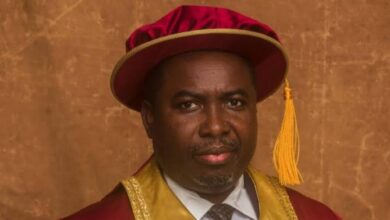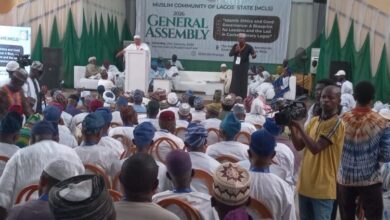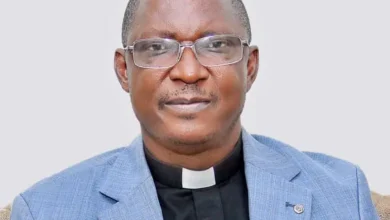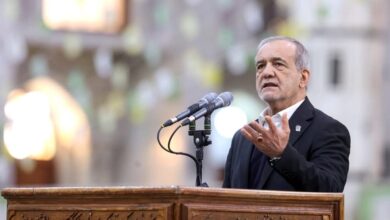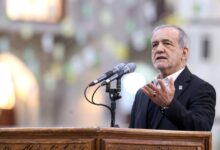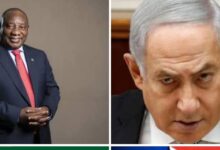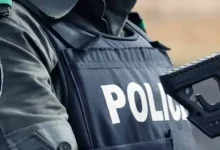LAGOS STATE: ‘De Renaissance Patriots’ debuts to lead better state for indigenes
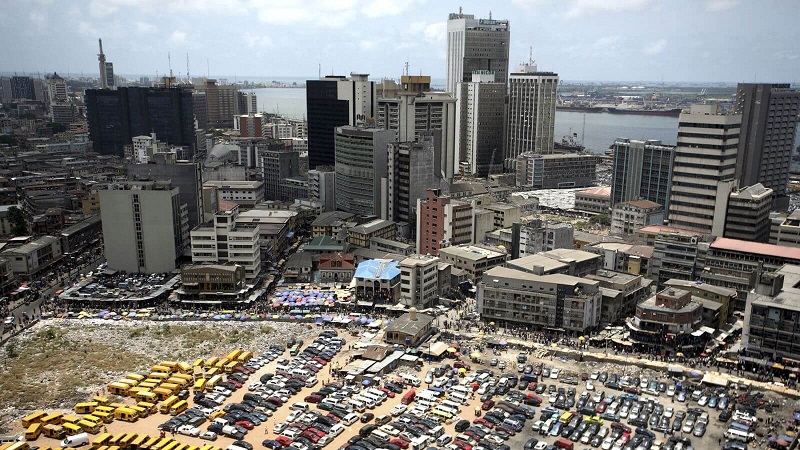
By BASHIR ADEFAKA
“If you deceive us all the times, you cannot have your way all the times,” these seem to be the message being passed by a remobilized front in the effort for the emancipation of Lagos State indigenes who, since 1999, have been excluded thereby plunged into penury because the benefits of constitutionally bequeathed rights of statehood, enjoyed by indigenes of other states of Nigeria, have persistently been taken away from them.
This renewed effort is coming with formation of a new group, formed to lead a better Lagos State for the indigenes, poised to bringing about a paradigm shift from the old narratives to a new order where indigenes rights are no longer negotiable.
To do this, the new group, named De Renaissance Patriots, has been established as a vehicle to drive the course of emancipation with primary objective of ensuring that an indigene takes the next governor’s seat in Lagos State while their benefits of statehood they had enjoyed since creation of the state in 1967 until 1999 are restored.
With former Minister of Communications and General Officer Commanding (GOC), Third Armoured Division of the Nigerian Army, Major General Tajudeen Olanrewaju (Rtd), as its Protem Chairman, former Managing Director/Chief Executive Officer of defunct First African Trust Bank now in merger with Zenith Bank PLC and former Chairman of the Isale-Eko Descendants Union, Mr. Yomi Tokosi its Protem Secretary and son of a late Oba of Lagos and repository of knowledge in history and culture, Prince Adelani Adeniji-Adele, as Coordinator, De Renaissance Patriots has shown that this time it is serious business.
The group, made up of retired Generals and very uncompromising Nigerians of the Lagos State extractions, has Professor Liasu Adele-Jinadu, Justice Shola Hunponu-Wusu (Rtd), former Military Governor of Osun State, Major General Leo Ajiborisha (Rtd) and Mr Akin (Baba) Martins as its patrons.
In an advertorial published on page 23 in the PUNCH Newspaper edition of Monday 6th November, 2023 and jointly signed by the Protem Chairman, General Tajudeen Olanrewaju, Protem Secretary, Mr. Yomi Tokosi, Coordinator, Prince Adelani Adeniji-Adele and all the Patrons, position of De Renaissance was launched with a preamble that summarizes, with emphasis, why the effort is now more than necessary.
“A few months ago, some dedicated indigenes of Lagos State came together to launch an indigenous outfit to lead the struggle to free Lagos State from imposition over their constitutional rights and heritage. To understand where they are coming from, it is pertinent to start at the beginning and highlight the different factors leading to the ethnogenesis that Lagos State Indigenes will become,” it said.
Brief history
To this end, the group gave a brief history of Lagos State before its creation as a background with valid historical facts for the renewed course of pursuit noting that, based on these and events leading to the creation of the state, the aborigines cannot accept to be lectured on the classification of its indigeneship by those who do not know their history.
Specifically it said, “Right from the time of existence of the Eko Dynasty up to around the beginning of Fourth Republic in 1999, Eko, through its transformation into a political and administrative union with the outlying towns and villages, had lived in peace with the citizens that domiciled within its boundaries and outside it.
“Many scholars, historians and titled traditional chiefs have produced documents and court decisions from pre-colonial era to the present times, where the issues of rightful ownership of the land by the natives have been affirmed.
“History has helped us to understand where ancestral aborigines of Eko indigenes were coming from and where we are proud to be today. History taught us through oral tradition and the colonial records that Aworis were the original settlers of Eko before the arrival of the Portuguese in 1472. This was followed by the Bini invasion almost a century later. After the settlement, then the Binis set up their own royal lineage starting from Asipa-Ado as the first Oba of Lagos to this day. It was when King Akinsemoyin moved into Iduganran that the commerce began to flourish with trade with Portuguese.
“Similarly, other components of history of the indigenes of Lagos state had established that there existed other towns and villages that make up the five divisions of Lagos State vis:- IKORODU, BADAGRY, IKEJA, LAGOS AND EPE. We will address this in due course pointing out its evolution from the Colony of Lagos and its environs.
“Let’s look at the histories behind the developments that culminated into what historically became known as Lagos Colony.”
It went on to state the histories: “It is a known historical fact the Lagos became a British Colony on 5 March 1862.This was after Lagos was bombarded in August 1861 and was ceded to the British.
“Badagry was founded in the early 15th century on a lagoon off the Gulf of Guinea. In 1863, it was annexed by the British and became part of the Lagos Colony.
“In 1892, Epe was incorporated into the Lagos Colony as part of the British Protectorate.
“By a Deed of Cession of August 4, 1894,colonial rule was established in Ikorodu and it became part of the Lagos Colony.
“Ikeja, a strategic town and later division and about one of the largest Awori settlements in Lagos was finally incorporated in the 20th century and there is a claim that it was an amalgamation or an acronym from Ikorodu and Epe. Another claimed that it derived its name/ origin from a deity worshipped in Ota known as Akeja Onigorun.
“Suffice is to say that what the British succeeded in doing was the artificial physical integration of components of nationalities that had standing cultural and filial relationship dating back to centuries and had acted in unison most times.”
Continuing it said, “Lagos State was created on 27 May 1967, according to the state creation and transitional provision Decree no 14 of 1967, which restructured Nigeria into a federation of 12 states. Ikorodu, Epe, Ikeja and Badagry Divisions were joined with the metropolitan Lagos to form the state.
“And finally, Lagos State was gazetted into five administrative divisions and further divided into 20 Local Government Areas (LGAs) later. These divisions have the acronyms of IBILE established by Edict 3 of 1968.”
The Patriots were vehement saying, “Based on these historical facts and events leading to the creation of Lagos State, the aborigines cannot accept to be lectured on the classification of its indigeneship by those who do not know our history. Their uninformed dialectic way of using alternative options to indicate Lagos City as a no man’s land is not tenable.
“And, we believe that, there is no variation in our view of the clear lines of definition between the city of Lagos, the Eko metropolitan and the state. Professor Rasheed Ojikutu, an illustrious son of Lagos and renowned professor of University of Lagos, has cleared any iota of doubt about the nomenclature of Lagos as a city, metropolitan and state. Since 1967, Lagos State has become a functional state entity within the Nigerian State from Federal Capital status.”
On diminishing political rights of the Lagos State indigenes, the group is saddened by the fact that Lagos State from the beginning of democratic dispensation in 1999 has been sold as a political orphan.
It said, “The political administration in the state has been taking away the indigenous rights in the full participation of governance. With the exception of administration of Raji Fashola (SAN) as the Governor of Lagos State, the seat of governance has always been allotted to a non-indigene. Those running the affairs of government in Lagos State have been mainly non-indigenes. The indigenes have been robbed at the executive, legislative, public and civil service levels as over 60% are non-indigenous holders.”
Sack of 10,000 civil servants, marginalisation, court giving no justice
It pointed out that, “Lagos State is the only state in the whole of the federation where these aberrations hold through abuses of power. The recent appointments of Mrs Ade-John as a full minister representing Lagos State at the Federal Executive Council and Hon Jide Jimoh nominated as Lagos Ogun representative in Federal Civil Service Commission slot are institutionally wrong, unjust and injurious to the pride of indigenes.
“There are so many appointments held within the executive, legislative, public and civil service at the expense of indigenes, by people who are from outside the state and yet the indigenes remain unemployed and they are loyal members of the administration. Such appointments like SAs, SSAs, and so on are held by people from outside. Whereas our own people are qualified to hold such appointments.
“We even went to court under the banner of Omo Eko Pataki to demand for our own constitutional rights but, up till now, we are still being tossed around. We are yet to get justice.”
With the formation of De Renaissance Patriots, the indigenes are now seriously resolved in their struggle saying “Enough is Enough!”
“Our message at this time to the Executive Governor of Lagos State Government and the Governor’s Advisory Council (GAC) is to review the marginalisation of the indigenes of the state administration and remedy this inappropriate policy in relation to employment, appointment and observed aberration against the emancipation of the IBILE indigenes. It will be recalled that one of the first policies of the party in power was the sack of over 10,000 civil servants, 80% of whom were our people, Lagos State Indigenes. That was the beginning of marginalisation in Lagos State.
“These observations are made in good faith and without prejudice. History shall be our watch word and of interest in this project of the Patriots. Let it be on record that during the Town Council elections late 1950s and early 1960s in Lagos, there were fierce competitions between AG and NCNC political parties. Both Mr Moronu and Mr FS M’cewen, both NCNC candidates, contested for Lagos City Council chairmanship at different times and lost but won as councilors in their wards. Since then, nonindigenes have been respecting the electoral integrity in contesting for the highest political prize in Lagos against the Indigenes.
“Now the resurgent ambition of the non-indigenes of South West Yoruba, especially, and non Yoruba speaking Nigerians is not in the best interest of the indigenous native sons and daughters of the soil and for peaceful coexistence. This is an idea they, themselves, do not tolerate in their home states or contemplate to do in the Northern part or other Southern parts of the country.
“Again, recent reactions from Abia, Imo, and Anambra states indicate their resentment to certain sensitive appointments to nonindigenes of those states. Many of these citizens are concerned about protecting their rights and identities, particularly in these South East and South West Yoruba states.
“They are so concerned and sensitive in the protection of their interests. But they do not concede these rights to Lagos State indigenes who are outside their constitutional domain states. Is it right? Is it just?”
Before 1999
On why an indigene of Lagos State must take the next governor’s seat in the state, De Renaissance Patriots said, “From 1967 to 1999, during the military administrations in Lagos State, for every successive military administration, a senior military officer of Lagos State origin had always been appointed like other states as Military Governor and deployed to the state assigned to him. Thus, we had Gen Mobolaji Johnson, Admiral Shamsideen Lawal, Commodore Gbolahan Mudashiru, Col MO Sule, Commodore Olabode George, Gen Leo Ajiborisha and Lt Col Rasheed Shekoni. For 24 years on, apart from Raji Fashola, Lagos State has been having imposition of non-indigenes as our governor.Why must the rights of the indigenes be granted to the non-indigenes when they have the same rights in their own states?
“The struggle for creation of Lagos State did not begin in 1967. The political struggle became a matter of agitation between 1900 and 1956 when prominent Nigerians of Lagos origin formed various political movements to demand for the rights of indigenes and other citizens living in Lagos. One of the notable leaders of that period Sir Herbert Macaulay, who formed a political party in 1922 to actualise the dreams of Nigerian state. A committee of Elders was also formed under the leadership of Imam Basil Agusto Q.C. and Dr. T. A. Doherty.
“The committee passed a resolution calling on the Federal Military Government” to create a Lagos State by decree without further delay.” Lagos City had remained a centerpiece of commerce from the period of Oba Akinsemoyin and had remained politically exposed as early as 1905. Many prominent Nigerians dominated the political scenes. We have in mind today, Oba Esugbayi Eleko, Taiwo Olowo, the Rhodes Family, Pa Seke Olukolu, Sapara, the Vaughans, the Savage and many others. The case of Amodu Tijani versus Secretary Southern Provinces was a good case in point involving land and politics.
“In June 1956, Oba of Lagos, Musendiku Adele II, sent a memorandum to the colonial secretary, pleading for the creation of the Lagos region. After all these struggles, why must indigenes be denied the political heritage of their sweat in the name of liberal democracy? Is it fair? Is it just? Is it good to all concerned? Can it create harmony to all the people?”
Hall of Fame
De Renaissance noted that Lagos State Government was yet to recognise those who kept the touch of its creation to the time of its creation in 1967 and left, as a call to duty, saying the Lagos State Hall of Fame must not fail to acknowledge the roles of the founding fathers of the state.
It listed such prominent Lagosians who were founding fathers of Lagos State to include Oba Dosunmu, Oba Esugbayi Eleko, Chief Oluwa of Lagos, Oba Musendiku Adele II, Oba Adeyinka Oyekan, Oba Oyefusi, the Ayangburen of Ikorodu, Obanikoro of Lagos, Ibiyinka Olorunnimbe, Oba CD Akran, James C Vaughan, Orisadipe Obasa, Kitoyi Ajasa, Sir Kofo Abayomi, Akinola Maja, Akanni Doherty, HO Davies and Jubril Martins.
It said, “Lagos State movement with the motto: “Ge de gbe l’ Eko wa”, with leaders such as Oba of Lagos, Musendiku Adele II, Alh Issa Williams HM AlliBalogun, Prince Ibikunle Akitoye, Kasali Kotun, TOS Benson, Justice Oluwa, Dr. JK Randle, Adeniran Ogunsanya, SL Edu, I.S Adewale, Fagbenro Beyioku, Lateef Jakande, Atanda Fatayi-Williams, Sikiru Shitta-Bey, Ajose Adeogun and many others, to mention a few who carried the freedom banners against merging Lagos with Western Region.
“We are back to it because there is a mute plan to take Lagos State to Oduduwa group, robbing Peter to pay Paul. On this great list, we cannot failto acknowledge the active role being played by Alhaji Femi Okunnu, the last man standing, still defending the indigenous rights, including Mr. Allison Ayida and Phillip Asiodu, these last two, even though they were not Indigenes, stood by us and supported us in the creation of Lagos State in 1967,” the group stated.


